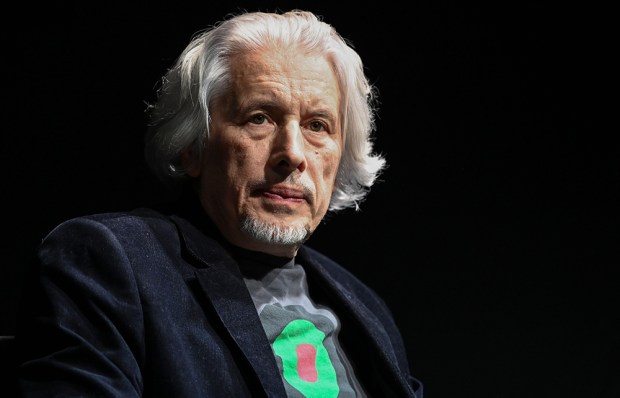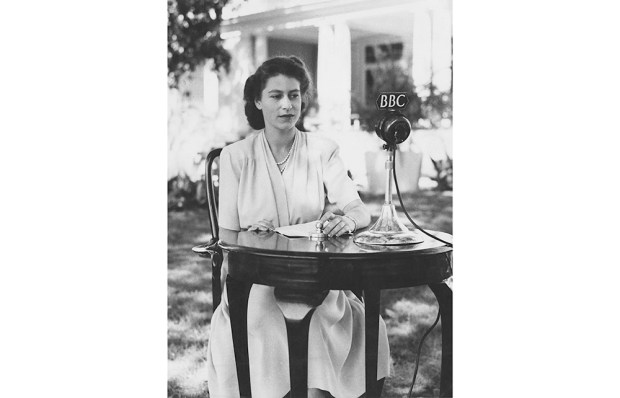Two years ago, the counter-extremist analyst Julia Ebner decided she needed to delve deeper into the extremists trying to disrupt and destabilise our democracies. So the Austrian researcher invented five identities and joined a dozen secretive digital worlds of white nationalists, radical misogynists and jihadi women to explore their networks, their strategies and their recruitment techniques. This sobering book tells the tale of her journeys into a swampy underworld filled with fanatics and fantasists.
Many of the people she came across seem like the saddest of losers. She joins a white nationalist dating site — motto ‘Love your race and procreate’ — where people admit they received ‘negative’ feedback on mainstream forums. ‘I am not surprised,’ writes Ebner. ‘Imagine that awkward situation when you sit with a Tinder date who tells you the Jewish policymakers, bankers and journalists have been plotting to wipe out the white race.’ An American anti-Semitic hacker, who briefly deleted all gay and lesbian novels from Amazon, was jailed for identity theft and then fled to a Russian breakaway region in Moldova, tells her he is lonely and miserable.
Then there are the ‘Incels’, a sub-culture of ‘involuntary celibates’ filled with a loathing for women born from their sexual frustration. And Trad Wives, a bunch of anti-feminists who see their role in life as submitting to male desires. ‘Men prefer women who don’t talk too much,’ says one. ‘Forget your career and just concentrate on the things men look for in a woman.’ Others argue that ‘men who spank their wives are doing it right’. This is an alt-right group whose members turn hate on themselves rather than on other people; yet Ebner, emotionally vulnerable after a painful break-up, finds ‘something weirdly comforting in the self-blaming, self-denigrating language that connected its members’.
It all seems at times faintly amusing, if disturbing, like one of those Louis Theroux documentaries about social inadequates consumed by hate. The author attends a neo-Nazi rock festival on the German-Polish border — held on Hitler’s birthday — which features bands with names such as Burning Hate and Painful Life. There are martial arts lessons in readiness for the supposedly impending race war, which looms large in these netherworlds. Ebner is left repulsed. ‘Laughing at anti-Semitic jokes and dancing to white power rock in simply not my thing. I find it hard to connect with them on a human level, to look past their ignorance towards their own history.’
She admits that just three years ago, briefing Home Office experts about meme-posting trolls on the internet felt slightly silly. Certainly it seems on the surface hard to take seriously many of these groups. Take the ridiculous community of QAnon supporters, who archive and debate ‘breadcrumbs’ of information about ‘the Deep State’ sown by Q, who claims to be a US spook. Probably started by hoaxers, this unites various conspiracy theories, from Princess Diana’s ‘faked’ death to the hushed-up existence of aliens. Yet as the author points out, conspiracy theories are more often born in times of societal crisis — and QAnon led one man to kill his brother with a sword, since he believed his sibling was a lizard.
One chapter starts superbly:
Like most people, I had no idea what to expect from a black-hat hacking course — learning to hack for illegal and malign purposes simply hadn’t featured high on my list of priorities for life. It was hence with very little experience that I joined the pro-
Isis hacking group MuslimTec.
Soon Ebner is alerting the FBI after her teacher starts proposing hacking a power plant. Then she details how a single 20-year-old student terrified the entire German political class from his bedroom by orchestrating a data hack of their personal details.
She lurks in chatrooms as white nationalists in the United States plot their ‘Unite the Right’ march in Charlottesville, hiding fanaticism beneath a free speech banner. They stress the need to look respectable, telling people who are obese to stay away and urging followers to wear ‘Make America Great Again’ hats, so that if attacked they look like Trump supporters. The event is promoted to moderate audiences around issues of identity and history, while anti-Semitic conspiracy theories get pushed on extremist discussion forums. The killing of one protester and the vicious beating of another showed how easily online hatred can explode into real-world savagery.
Here lies the real value of Ebner’s fascinating and important work. She exposes how the internet has brought together fringe communities, fuelled extremists and fanned their global influence. Going Dark shows how diverse groups feed off each other, using similar tactics to create social bubbles while exploiting the weakness — or reluctance — of social media firms to control their hate-filled content. It underlines the dangers of ignoring the threat of far-right terror, the normalisation of violence-inciting ideologies and the fearsome power of technology to inspire copycat attacks.
Just as Ebner was concluding her book an event occurred that underlined her theories in blood by blurring the lines between trolling and terrorism. Brenton Tarrant, a 28-year-old Australian, attacked two mosques in Christchurch, New Zealand and killed 51 people in a spectacle aimed at an online bulletin board popular with the far right. He tweeted pictures of his guns in advance, and live-streamed the massacre, asking viewers to produce memes. His manifesto was filled with the jokes, language and anti-Muslim ideologies that Ebner saw so often during her digital wanderings. The following day, Trump equated migrants with ‘invaders’, thus reinforcing the revolting identitarian ideology that inflamed the massacre. ‘We have entered a new age of extremism,’ concludes the author rightly./>
Got something to add? Join the discussion and comment below.
Get 10 issues for just $10
Subscribe to The Spectator Australia today for the next 10 magazine issues, plus full online access, for just $10.
You might disagree with half of it, but you’ll enjoy reading all of it. Try your first month for free, then just $2 a week for the remainder of your first year.














Comments
Don't miss out
Join the conversation with other Spectator Australia readers. Subscribe to leave a comment.
SUBSCRIBEAlready a subscriber? Log in